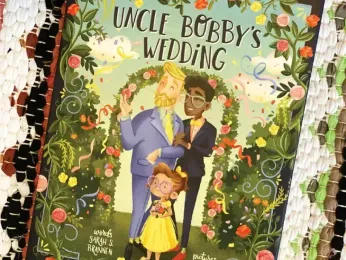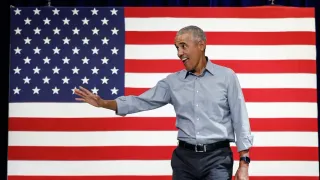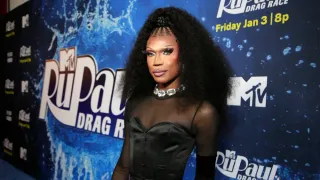
Jun 27
US Supreme Court requires opt out option for LGBTQ school lessons
Lisa Keen READ TIME: 6 MIN.
Whenever Justice Samuel Alito authors an opinion related to the concerns of LGBTQ people, readers know it is going to be detrimental to those rights. And so it is with his ruling issued Friday in Mahmoud v. Taylor concerning school lessons that address LGBTQ topics.
In a 6-3 decision, the Alito-led majority found that a group of six parents and an unincorporated group to support parental opt-out policies in Montgomery County, Maryland, public schools “are likely to succeed” at the district court level with their challenge. In doing so, the high court reversed a district court’s denial of a preliminary injunction against Montgomery County’s enforcement of its “no opt-out” policy for parents objecting to storybooks with LGBTQ characters being included among many other books of various topics for English literature classes.
“Today’s decision by the U.S. Supreme Court is a heartbreaking one for LGBTQ+ students, families, and employees of Montgomery County Public Schools,” said Brian Bond, chief executive officer of PFLAG National. “…Learning about different people, histories, and experiences in school benefits students.”
Lambda Legal senior counsel Karen Loewy said the decision in Mahmoud v. Taylor is “yet another step toward allowing those with religious objections to opt out of recognizing LGBTQ+ people and families as equal participants in our shared community.”
Tony Hoang, a gay man who is executive director of statewide LGBTQ civil rights organization Equality California, condemned the court’s ruling for setting “a dangerous precedent that leads to a slippery slope of what curriculum or instructional materials can be opted out of, and calls into question what can be introduced to our classrooms in the first place.”
No matter how “fundamentally important” religious liberty is, added Hoang, public schools shouldn’t be forced to exempt students from lessons solely because they aren’t in alignment with their families’ personal, religious or cultural beliefs.
“LGBTQ+ themed books are already among the most banned and challenged in school districts and libraries across the country. Today’s decision will make it even harder for these books to find their way into the hands of students who simply want to read - and who may find validation and acceptance in the process,” stated Hoang.
The Montgomery County school policy in question does not allow parents to pull students from the classroom when LGBTQ books are involved. The plaintiff parents claim the “no opt-out” policy is an unconstitutional “burden [to] their religious exercise.”
The Supreme Court majority decision endorses the lower court’s issuance of a preliminary injunction that will allow parents of the children in the lawsuit to excuse their children from “instruction related to the storybooks” that include LGBTQ characters while their lawsuit proceeds. But it also foreshadows approval of the parents’ objections if and when they return to the high court on the merits.
“We have thus recognized limits on the government’s ability to interfere with a student’s religious upbringing in a public school setting,” said Alito after recounting various cases in which the issue has also come up. He did not mention last week’s decision in U.S. v. Skrmetti, where the court did not protect the right of parents seeking medical treatment for their children with gender dysphoria.
The dissenting opinion from the court’s liberal justices did, noting “our precedent requires just the opposite result.”
Lead plaintiff Tamer Mahmoud and five other parents filed the lawsuit seeking to force the public schools in Montgomery County, Maryland, and school Superintendent Thomas Taylor to provide a notification and an opt out option when teaching elementary age students curricula that include storybooks with LGBTQ characters. The specific concern before the Court was the opposition by some parents to the decision by Montgomery County Public Schools to include several books with LGBTQ families as part of the English curricula at the elementary school level.
The Supreme Court summarized the legal question this way, “Do public schools burden parents' religious exercise when they compel elementary school children to participate in instruction on gender and sexuality against their parents' religious convictions and without notice or opportunity to opt out?”
It is arguably a stretch to say any of the books in question constitute “instruction on gender and sexuality.” For instance, one is the story of a family’s puppy getting lost at a Pride Day parade. Another recounts the worry of a young girl that her favorite uncle will no longer have time for her once married to his husband.
Even though the books are kept on a shelf with many other books, and students are at liberty to read or ignore them, the majority at the Supreme Court declared, “These books - and associated educational instructions provided to teachers - are designed to `disrupt’ children’s thinking about sexuality and gender.”
As the majority opinion notes, the school policy initially allowed opt-outs but then rescinded that option when it became cumbersome to administrate. According to the majority, “more than 1,000 parents signed a petition asking the [School] Board to restore opt out rights. The School Board held firm, telling unhappy parents that the LGBTQ-related storybooks would “not be used for explicit instruction on sexuality and gender, but rather as part of the `literacy curriculum’.”
The Fourth Circuit U.S. Court of Appeals agreed the plaintiffs could succeed on their free exercise claim, but it held they would have to “show direct or indirect coercion arising out of the exposure” to the storybooks. The Fourth Circuit said the parents had not identified sufficient evidence of such coercion to warrant an injunction against the policy. The appeals court majority said it “could not simply be assumed that any past lessons had or that any future lessons would `cross the line and pressure students to change their views or act contrary to their faith’.”
But the Supreme Court majority, led by Alito, said the school board’s introduction of the “LGBTQ+-inclusive” storybooks, along with its decision to withhold opt outs, “places an unconstitutional burden on the parents’ rights to the free exercise of their religion.”
Joining Alito was Chief Justice John Roberts Jr. and Justices Clarence Thomas, Neil Gorsuch, Brett Kavanaugh, and Amy Coney Barrett. Justice Sonia Sotomayor led the dissent, which was joined by Justices Elena Kagan and Ketanji Brown Jackson.
“Exposing students to the `message’ that LGBTQ people exist, and that their loved ones may celebrate their marriages and life events, the majority says, is enough to trigger the most demanding form of judicial scrutiny,” wrote Sotomayor. “The result will be chaos for this Nation’s public schools.”
Sotomayor argued that “requiring schools to provide advance notice and the chance to opt out of every lesson plan or story time that might implicate a parent’s religious beliefs will impose impossible administrative burdens on schools… Given the multiplicity of religious beliefs in this country, innumerable themes may be `contrary to the religious principles’ that parents `wish to instill in their children.’ Books expressing implicit support for patriotism, women’s rights, interfaith marriage, consumption of meat, immodest dress, and countless other topics may conflict with sincerely held religious beliefs and thus trigger stringent judicial review under the majority’s test.”
Sotomayor said the majority’s reasoning could be used to go beyond reading material.
“Interactions with teachers and students could presumably involve implicit `normative’ messages that parents may find `contrary to the religious principles’ they wish to impart to their children and therefore `hostile’ to their religious beliefs,” wrote Sotomayor. “A female teacher displaying a wedding photo with her wife; a student’s presentation on her family tree featuring LGBTQ parents or siblings; or an art display with the phrase `Love Is Love’ all could `positively reinforc[e]’ messages that parents disapprove on religious grounds.”
A brief to the court that Lambda Legal and PFLAG joined said that the storybooks with LGBTQ characters help create a safe and supportive school environment where all students can thrive. In a separate brief, GLAD Law, the National Center for Lesbian Rights, the Human Rights Campaign, and several other groups noted that the LGBTQ books are very similar to other books included in the curriculum.
Mahmoud and the other plaintiff parents say books with LGBTQ characters have messages that “contradict their sincerely held religious beliefs about marriage, human sexuality, and gender.” By not providing an option for parents to remove their children from class when the storybooks are read, the parents said, the schools are in violation of the First Amendment.
They asked the district court for a preliminary injunction to require the school to give them advanced notice and the ability to opt their children out of classroom activities that involve the storybooks or matters relating to family life and human sexuality. Judge Deborah Boardman of the U.S. District Court for Maryland denied the parents’ request for a preliminary injunction before the case could be resolved on the merits of the case.
“The plaintiffs have not shown the no-opt-out policy likely coerces them to violate their religious beliefs,” wrote Boardman, therefore, they did not meet the requirements for a preliminary injunction.




